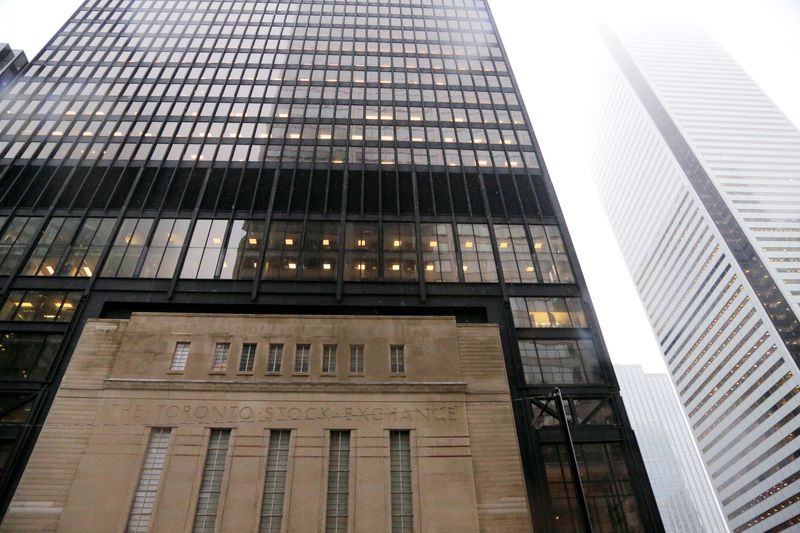
By Fergal Smith
TORONTO (Reuters) – The Canadian stock market stands to benefit from the expected election this year of a Conservative government that favors business-friendly economic policies and that could help reduce trade uncertainty with the United States, some investors say.
Polls show the Conservative Party, led by Pierre Poilievre, handily winning Canada’s next federal election, which by law must be held by Oct. 20 but will likely happen sooner.
A change in government would signal a shift in economic priorities for Canada after nine years in power for the Liberal Party of Prime Minister Justin Trudeau, investors said. It could spark an upward reassessment by investors of valuations on the TSX, Canada’s commodity-linked main stock market.
Trudeau plans to resign after a new party leader is chosen on March 9. His tenure saw the launch of green initiatives and new social programs, such as child and dental care, but was marked by a surge in government borrowing and weak productivity growth, as well as a strained relationship with Donald Trump during the Republican’s first term as U.S. president.
Trump’s threat to impose a 25% tariff on Canadian goods is a major economic uncertainty but investors say the impact on the TSX could be lessened if some products, such as energy, are excluded from the import tax, or if the measures are short-lived.
The TSX has added 2.99% this month after climbing nearly 18% in 2024. That was the index’s biggest advance since 2021 but trailed gains for the U.S. benchmark S&P 500, which has a heavier weighting in high-flying technology shares.
“The whole Canadian economy and stock market stands to benefit” from a more pro-business policy stance, including lower taxes, less red tape and greater focus on capital investment, said Brian Madden, chief investment officer at First Avenue Investment Counsel.
Poilievre has offered few detailed policies but has promised to reverse a capital gains tax increase that is unpopular with investors and to scrap a proposed emissions cap on the energy sector.
The main contenders to lead the Liberal Party, former Bank of Canada Governor Mark Carney and former Finance Minister Chrystia Freeland, are also distancing themselves from Trudeau’s spending policies – though Freeland was the architect of many of them as a longtime cabinet member.
A move to pro-growth policies could lift the multiple that investors are willing to pay for the earnings of TSX-listed companies, closing the gap with the U.S. market, investors said.
The TSX’s price to earnings ratio of 15 trails the 22 multiple for the S&P 500. The gap was less than two when Trudeau came to power in 2015.
